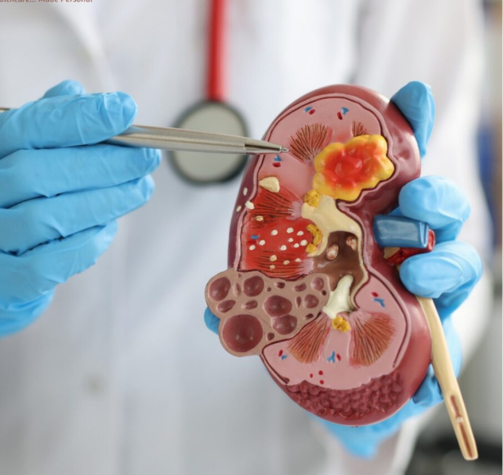Our Diagnosis and Initial Management
The process begins with a thorough diagnosis, involving imaging techniques like CT scans,
ultrasounds, and X-rays to determine the size, location, and type of kidney stones. Blood and
urine tests are conducted to identify any underlying metabolic disorders contributing to stone
formation. Dr. Jamshed Anwer evaluates the patient’s medical history and symptoms to devise an
appropriate treatment plan. Initial management may include pain relief medications and increased
fluid intake to facilitate the passage of small stones.
The Transplant Treatment Options and Procedures
For stones that do not pass naturally, Dr. Anwer offers various treatment options based on the
stone’s characteristics and patient’s condition. Shock Wave Lithotripsy (SWL) is a common
non-invasive procedure where high-energy shock waves break the stones into smaller fragments,
allowing them to pass through the urinary tract. Ureteroscopy involves inserting a thin scope
into the ureter to locate and remove or break up the stones using laser energy. Percutaneous
Nephrolithotomy (PCNL) is a minimally invasive surgery for larger stones, involving a small
incision in the back to access and remove the stones directly from the kidney. Dr. Anwer also
provides metabolic evaluation and medical therapy to prevent recurrence, including dietary
modifications, hydration guidelines, and medications to reduce stone-forming substances in the
urine.

